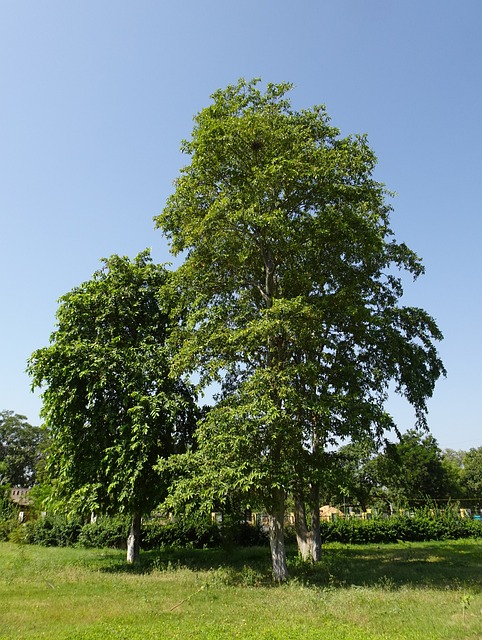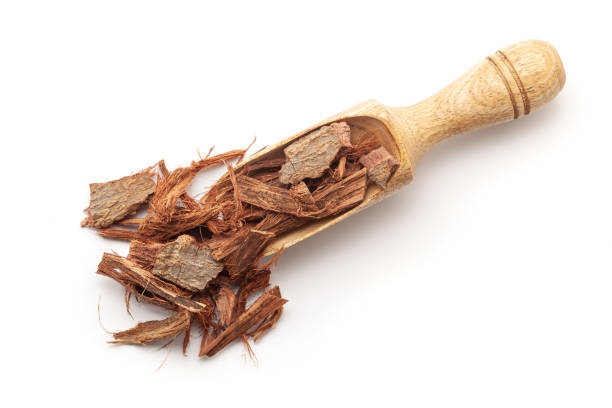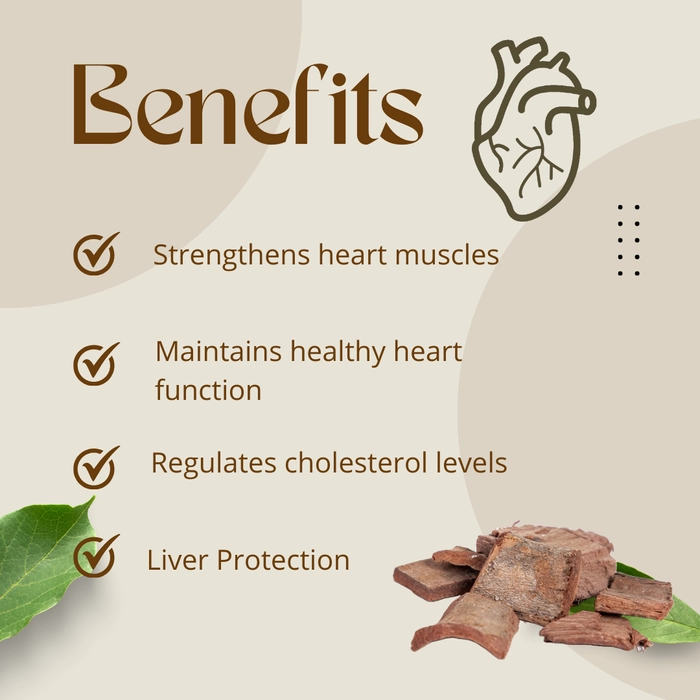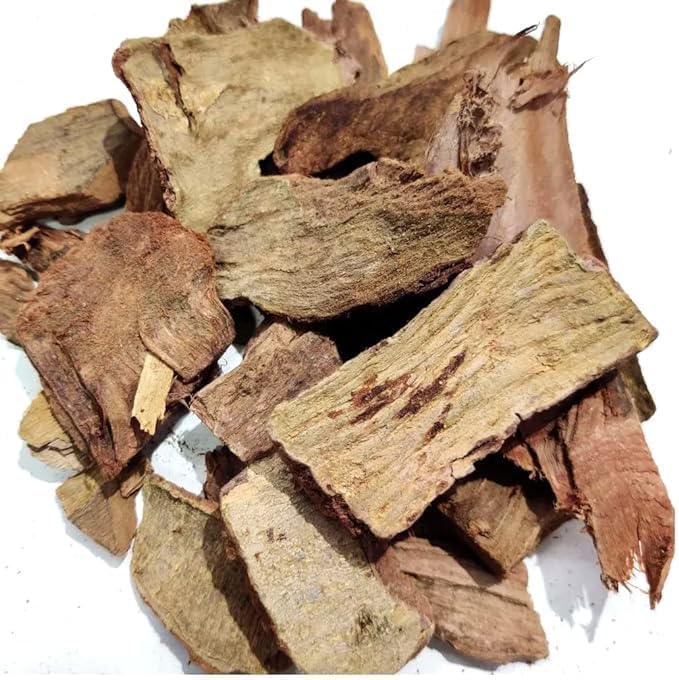
What is Arjuna Tree?
Arjuna, also known as arjun, is a majestic, deciduous tree that can reach heights up to 100 feet and has been valued for its wood and therapeutic properties for generations. It grows throughout the wet, marshy, sub-Himalayan regions of India and Sri Lanka, producing clusters of small white or yellow flowers amid its cone-shaped leaves.
The most sought-after part of the tree is its red inner bark, which is respected as a tonic for the heart and is considered similar to hawthorn in European herbalism. The thick, white-to-pinkish-gray outer bark molts naturally once a year and is harvested when the trees are mature. Giving the tree time to recover and regrow its bark is a key component to sustainable harvesting.
What is Arjuna bark?
Arjuna bark, obtained from the Terminalia arjuna tree, is traditionally used in Ayurvedic medicine for its numerous health benefits, particularly for heart health.

Uses
Arjuna bark is widely used in Ayurvedic medicine for promoting heart health, as it helps strengthen heart muscles, improve circulation, and manage conditions like high blood pressure and heart disease. Its antioxidant properties aid in protecting the body from oxidative damage, while its anti-inflammatory effects make it beneficial for reducing inflammation in various conditions. Additionally, arjuna bark is used to manage cholesterol levels, improve liver function, and support overall cardiovascular wellness, making it a versatile remedy for promoting long-term health.
According to Dr John Douillard, globally renowned leader in the field of Ayurveda, Arjuna is a “Herbal Hero for your Heart”. Supported by thousands of years of traditional use, primarily for cardiovascular health, Arjuna subscribes to the “Doctrine of Signatures” which states that herbs resembling various parts of the body can be used by herbalists to treat ailments of those body parts.
Forms
- Powder: Ground form for easy mixing with water or other beverages.
- Capsules: Convenient for those who prefer supplements without taste.
- Tinctures: Liquid extracts that can be taken directly or mixed with water.
- Teas: Infusions made by steeping the bark in hot water.
- Tablets: Compressed form for straightforward dosage.
- Syrups: Sweetened liquid formulations that may include other herbs for enhanced effects.
- Decoctions: A method of boiling the bark in water to extract beneficial compounds.
Health Benefits
Arjuna is best known as one of the foremost Ayurvedic herbs for supporting all areas of heart health. Here are a few of arjuna’s remarkable benefits when it comes to promoting cardiovascular wellness:
Strong Heart Function and Healthy Circulation
Arjuna strengthens and tones the circulatory system, rejuvenates the soft tissues, and promotes proper function of the heart muscle.
Healthy Flow of Blood
Arjuna’s properties support the maintenance of healthy cholesterol levels already within the normal range, balanced blood pressure, and proper coagulation in the blood.

Gut Health
Arjuna benefits the delicate gut system by helping to strengthen and maintain the integrity of gastric mucosa (the lining of the stomach). This is important as it defends against acid attacks which can lead to heartburn, and explains why many traditional communities use Arjuna bark as an antacid and digestive tonic.
This versatile herb also has strong antibacterial qualities, making it particularly effective against helicobacter pylori (H. Pylori), a well-known bacterium that can live in the digestive tract and cause ulcers, gastritis and other stomach infections.
Liver and Kidney Health
The powerful antioxidants found in Arjuna also work to improve liver and kidney function, helping these organs to flush toxins out of the body whilst encouraging bile production (in the liver). It protects the liver and kidneys by increasing antioxidative activities and is especially indicated in the treatment of liver cirrhosis.
For Anxiety
According to one study, Arjuna bark can significantly reduce chest discomfort by lowering cortisol (stress hormone). Arjuna can also help those with stable angina since it lowers blood pressure, manages HDL levels, and increase exercise tolerance.
For Inflammation of the Airways (bronchitis)
Arjuna can help manage lung problems such as cough, asthma, and bronchitis, and as per Ayurveda, various lung problems such as bronchitis.
Other Benefits

- Arjuna has an astringent effect that detoxifies the blood. Its homeostatic qualities aid in controlling exacerbated gall bladder states and relieving bleeding problems.
- This herb’s general cleansing effect helps clean urinary infections (UTIs).
- It can control the hormonal cycle and support the uterus in females. It is prescribed for endometriosis, fibroids, cysts, and various hormonal abnormalities. In addition, this plant can lessen excessive menorrhagia bleeding.
- Arjuna has a powerful balancing impact on the body’s gall bladder and Kapha doshas, aiding in healing ulcers and wounds.
Is Arjuna Safe?
Arjuna is generally considered safe in most situations, making it a ready ally for many. That said, it’s always important to approach the use of herbs with care.
Side Effects
Here are the potential side effects of arjuna bark in point form:
- May cause nausea, gastrointestinal discomfort, or constipation, especially in large doses.
- Not recommended for individuals with low blood pressure, as it can further reduce blood pressure.
- May interact with heart medications, requiring caution for those on such treatments.
- Pregnant and breastfeeding women should avoid using arjuna bark without consulting a healthcare professional.
- Long-term use should be monitored to avoid any potential risks.




